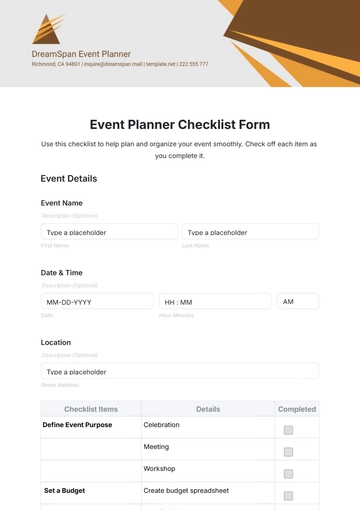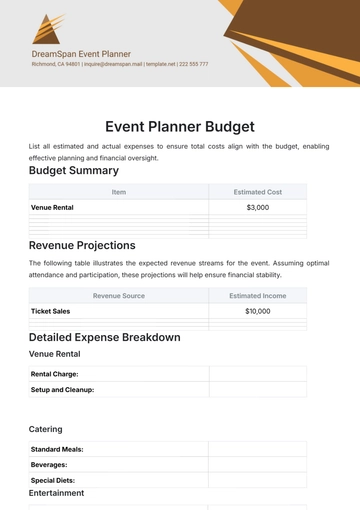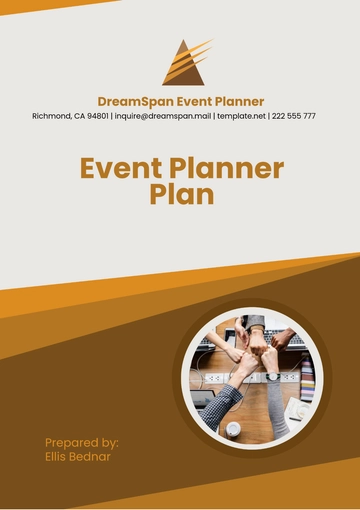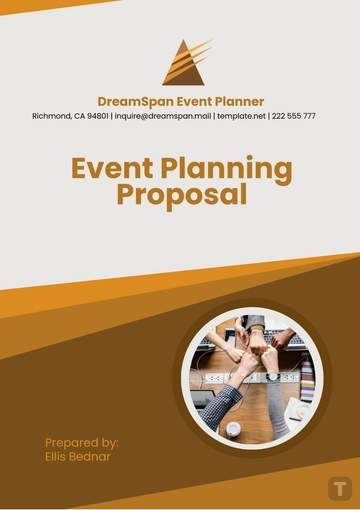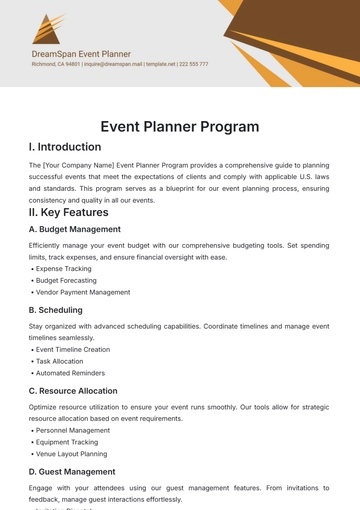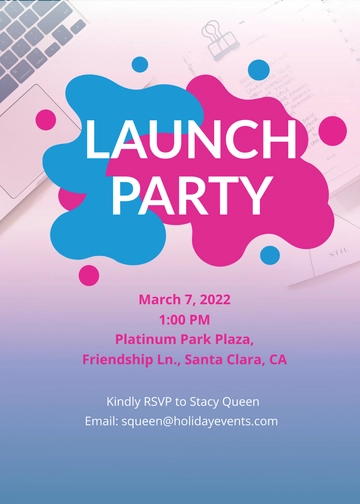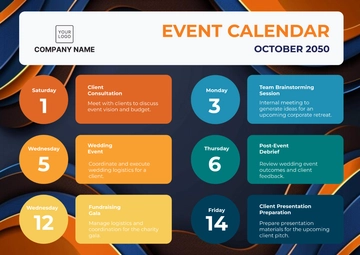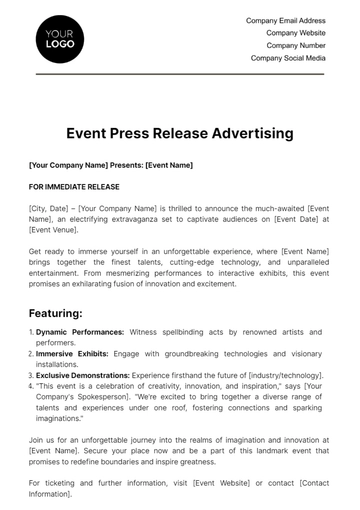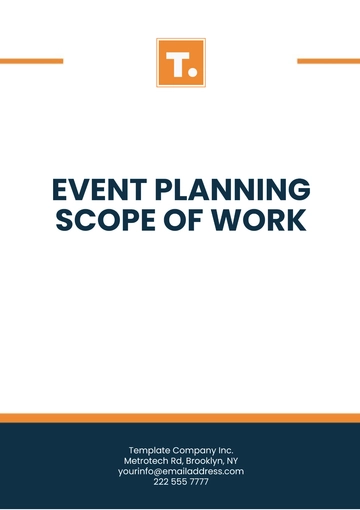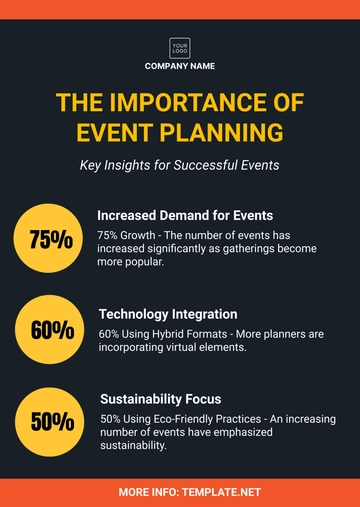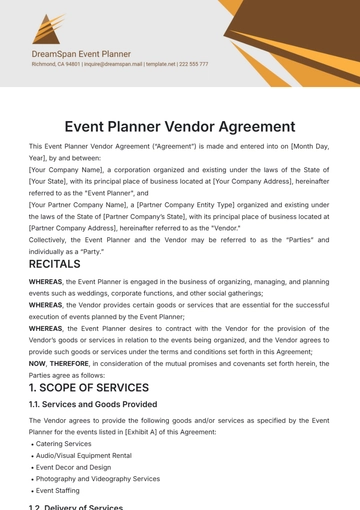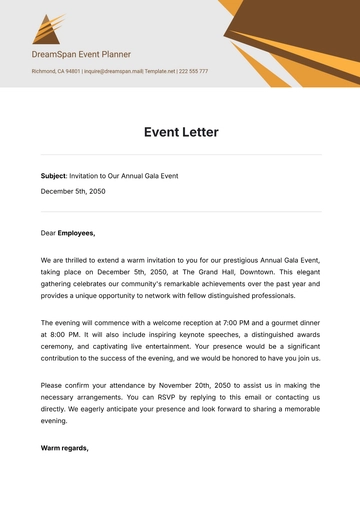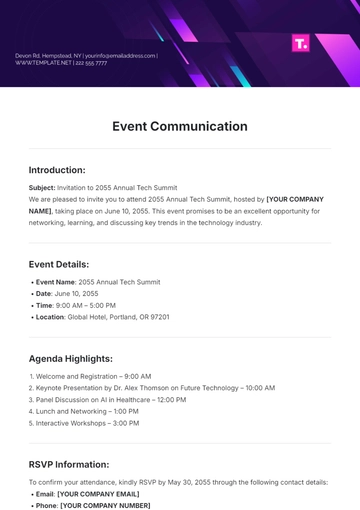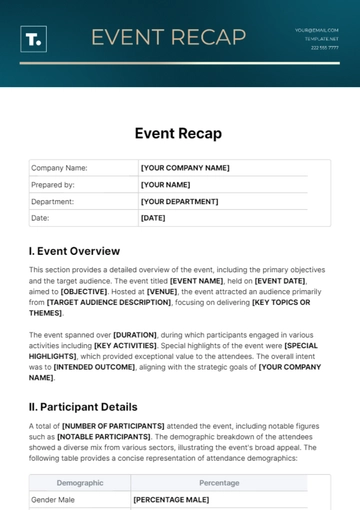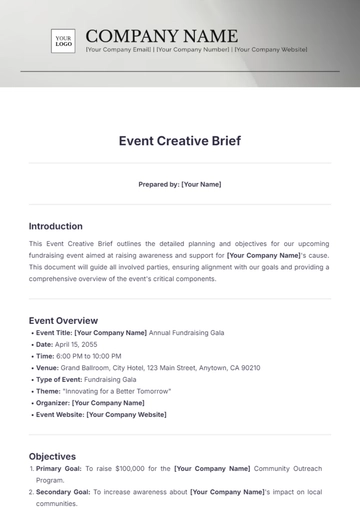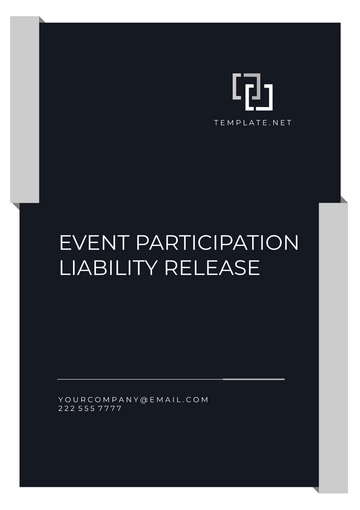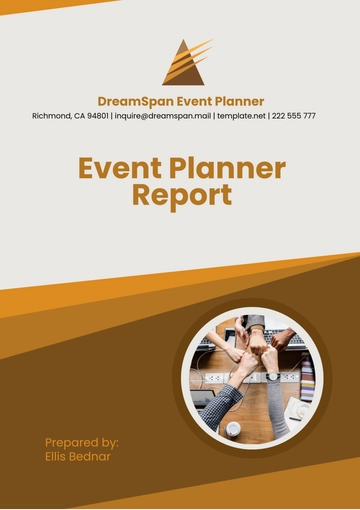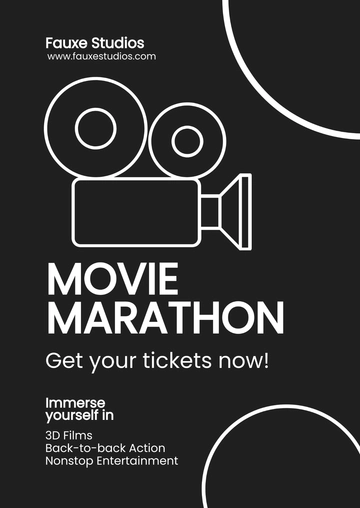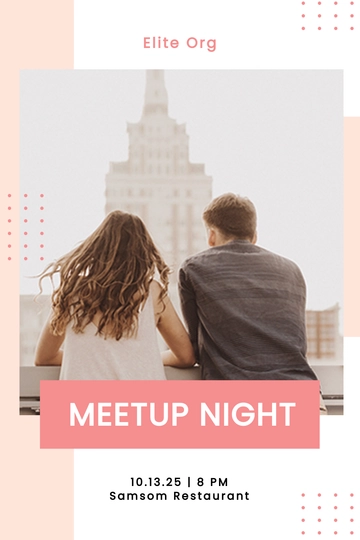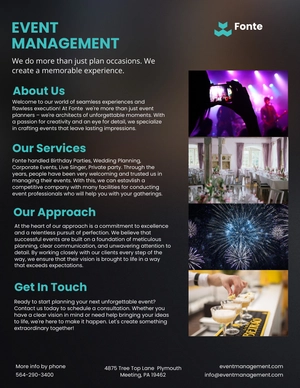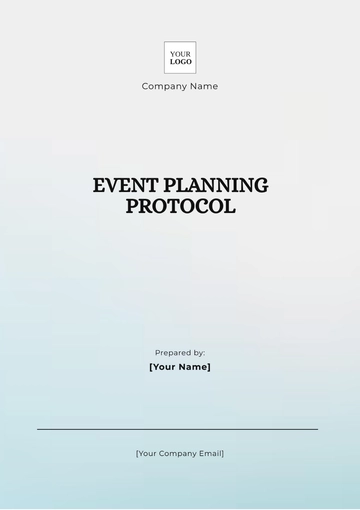Free Event Case Study

I. Introduction
This documentation serves to offer a thorough insight into the specified event conducted under the organization [Your Company Name]. The segments outlined provide critical insights from the conceptualization stage through to the execution and post-event review, ensuring a comprehensive understanding of the event management process.
II. Background
[Event Name] is an annual event that targets professionals and enthusiasts in the technology and innovation sectors. Hosted by [Your Company Name], the event aims to showcase cutting-edge technologies, foster networking among industry leaders, and inspire innovation. The event has been running since [Year], attracting participants from [Locations].
The primary vision for [Event Name] was conceptualized by [Event Founder's Name], focusing on leveraging technology for sustainable development and digital transformation. The event has grown over the years, necessitating a structured approach to manage its evolving scale and scope.
III. Objectives
The objectives for [Event Name] in the year [Year] included:
Enhance the engagement of technology professionals and startups.
Provide valuable insights into emerging technologies and their impact on global industries, aiming to foster learning and development.
Maximize attendee satisfaction and increase the subsequent year’s return rate.
Generate a measurable impact on cross-industry collaborations and technological innovations.
The goal was to ensure that each objective was not only achieved but also resonated with the event's overarching theme and [Your Company Name]’s mission.
IV. Challenges
The primary challenges faced during the planning and execution of [Event Name] included:
Limited budget constraints impacting venue choices, guest speakers, and overall event scope.
Timing and scheduling conflicts, particularly with key stakeholders and participants.
Ensuring a diverse and inclusive environment conforming to modern standards and expectations.
Effective marketing to reach a broader yet targeted audience through digital and traditional channels.
Each of these challenges demanded strategic foresight and innovative problem-solving techniques to ensure the event’s success while maintaining adherence to [Your Company Name]'s standards and values.
V. Strategies Implemented
To address the aforementioned challenges, the team employed several strategic initiatives:
Partnering with local businesses and sponsors to alleviate financial constraints and enhance community engagement.
Utilizing digital tools for efficient scheduling and real-time updates to participants and stakeholders.
Implementing rigorous inclusivity audits by third-party consultants to ensure diversity standards were met.
Engaging with well-known influencers and leveraging social media platforms for extensive event promotion.
These strategies were vital in navigating the complexities of the event planning process and contributed to overcoming the potential roadblocks faced by the organizing team.
VI. Results Achieved
The effectiveness of the strategies implemented for [Event Name] was evident in several accomplishments:
Record attendance figures, with an increase of 30% compared to the previous year.
High participant satisfaction scores, with over 85% indicating they would return for future events.
Significant media coverage, resulting in increased brand visibility.
Substantial post-event engagement on social media, with [#] of impressions and interactions.
This positive outcome not only met but at times, exceeded the primary objectives set initially, securing the event's place as a keynote in its respective industry calendar.
VII. Key Takeaways
The experience and data gathered from [Event Name] offer insightful takeaways for future events. These include the importance of:
Early planning and engagement with potential sponsors and partners.
Adopting flexible, tech-driven solutions for event management.
Prioritizing diversity and inclusivity from the ground up.
Continual adaptation and innovation in marketing strategies to maintain audience engagement and expand reach.
Implementing these lessons will ensure that [Your Company Name] continues to deliver exemplary events that not only achieve but also set new benchmarks within the industry.
- 100% Customizable, free editor
- Access 1 Million+ Templates, photo’s & graphics
- Download or share as a template
- Click and replace photos, graphics, text, backgrounds
- Resize, crop, AI write & more
- Access advanced editor
Capture the essence of successful events with our Event Case Study Template from Template.net. Tailored for event planners and marketers, this customizable template is editable in our Ai Editor Tool. Create detailed case studies showcasing your event planning prowess and successful outcomes effortlessly. Highlight key strategies, challenges overcome, and client testimonials to showcase your expertise and event management capabilities effectively.
You may also like
- Event Flyer
- Event Presentation
- Event Poster
- Event Planner
- Event Letter
- Event Program
- Event Invitation
- Event Ticket
- Event Proposal
- Plan Event
- Event Banner
- Event Calendar
- Event Checklist
- Event Schedule
- Event Brochure
- Event Planning Contract
- Event ID Card
- Event Menu
- Event Report
- Event Agreement
- Event Form
- Event Postcard
- Event Quotation
- Event Budget
- Event Sheet
- Event Logo
- Event Planner Business Card
- Event FlowChart

